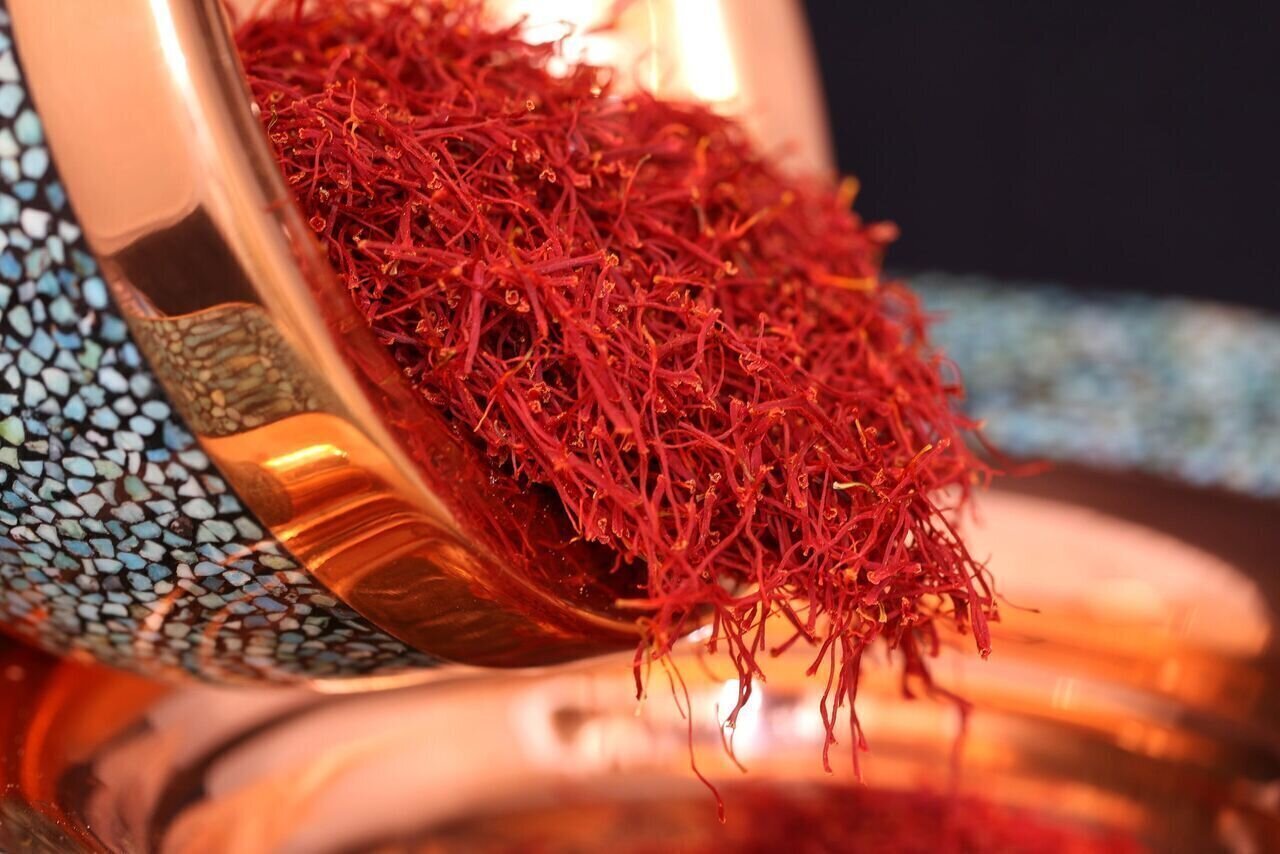Saffron exports at over $207m in year to March

TEHRAN - Head of the Study, Monitoring and Market Development Office of the Central Organization of Rural Cooperatives of Iran says 21 metric tons of Iranian saffron worth $207,786,281 were directly exported to 55 countries in the Iranian calendar year ending in late March.
“Despite the growth of exports in terms of weight and the increase in the price of this product in the country and international markets, we have observed a 15.7% decrease in the value of this product,” Roohollah Latifi said on Saturday.
The export of saffron with packaging of less than 30 grams experienced good growth, which accounted for 22 percent of the exported saffron in the Iranian calendar year 1402, while in 1401, this amount was about 15.5 percent, he added.
The United Arab Emirates (UAE) was the top destination for Iranian saffron with the purchase of 67,120 kg of saffron, followed by China with the purchase of 49,200 kg, Spain with 43,820 kg, and Afghanistan with 21,716 kg and a growth of 198 percent, Qatar with 5,774 kg, Italy with 5,604 kg, Kuwait with 3,301 kg, Oman with 2,993 kg, Bahrain with 2,683 kg, and France with 2,433 kg, he noted.
Saffron is one of the most important export products of Iran. The country aims to increase overseas shipments of the spice by easing restrictions on exporters.
Earlier this month, the Food and Agriculture Organization (FAO) of the United Nations signed a project with the Iranian Ministry of Agriculture aimed at warranting access to safe and authentic saffron products.
Titled "Control of Food Authenticity and Management of Food Supply Chain for Successful Achievement of SDGs," the project is in line with the United Nations Sustainable Development Cooperation Framework (UNSDCF), Sustainable Development Goals, and FAO Country Programme Framework (CPF).
The initiative is part of FAO's Technical Cooperation Programme (TCP) and is set to span two years, concluding in December 2025.
Under the auspices of the Deputy for Horticulture of the MAJ, the project targets the enhancement of a transparent and reliable saffron supply chain, ensuring food and nutrition security and safety for consumers. The initiative seeks to address the challenges posed by the globalization of food supply and the complexities of modern trade, particularly in the saffron industry, where Iran holds a dominant position, contributing approximately 90% of the world's production.
The project's impact will be profound, warranting consumers access to safe and authentic saffron products through the enhanced capacity for immediate response and effective enforcement mechanisms for food quality testing and traceability.
This project represents a significant step towards enhancing transparency and traceability in the saffron industry, ultimately contributing to food security and the achievement of Sustainable Development Goals.
This project exemplifies FAO's commitment to fostering sustainable agriculture and food systems, aligning with the global agenda for achieving the SDGs. By collaborating with national counterparts and leveraging expertise, FAO aims to empower countries like Iran in enhancing the resilience and sustainability of their agricultural sectors.
EF/
Leave a Comment